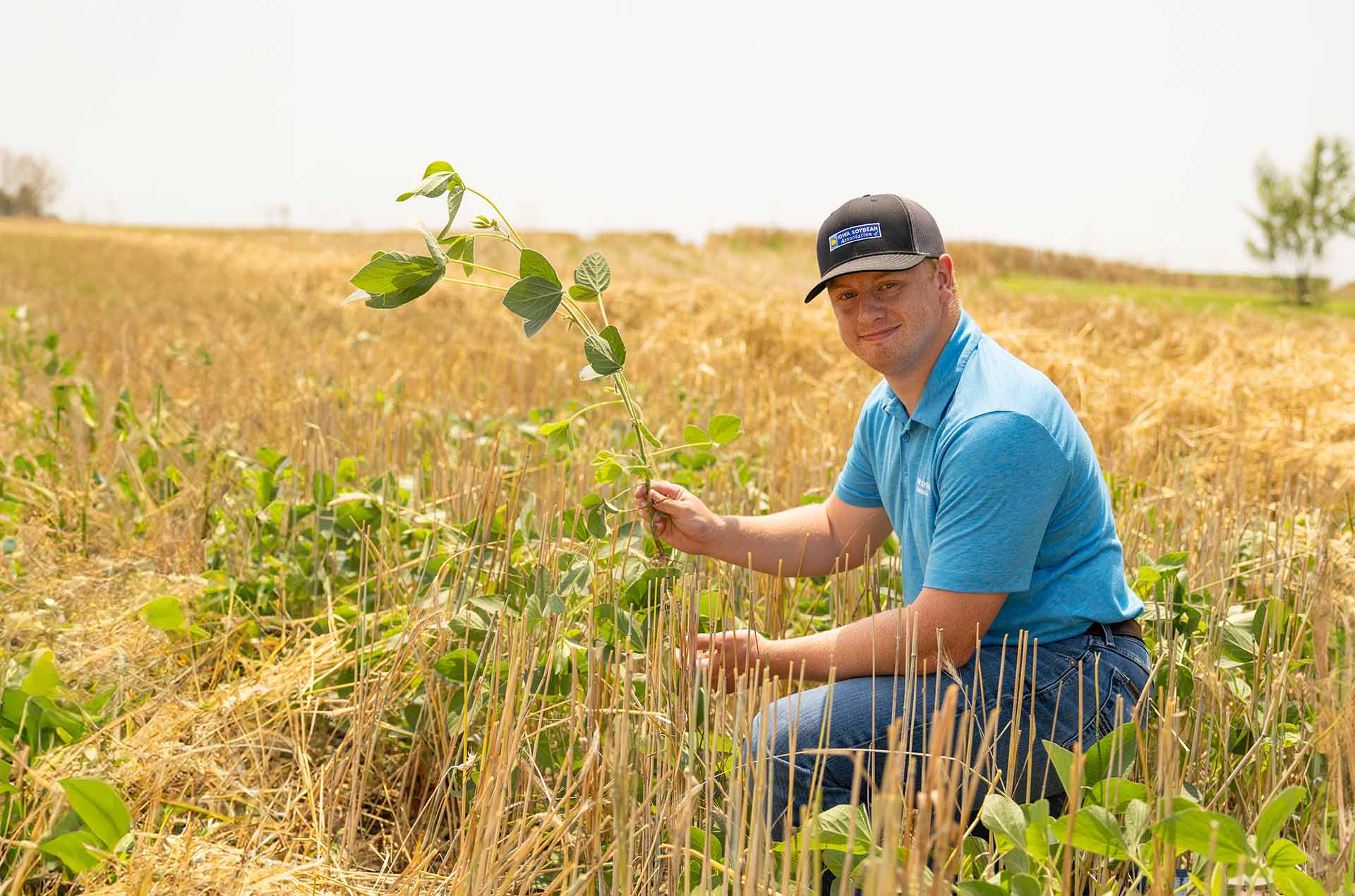
(Photo: Iowa Soybean Association / Joclyn Bushman)
Gaining experience in the field
August 22, 2024 | Kriss Nelson
This summer, four Iowa college students gained a one-of-a-kind agriculture experience as interns at the Iowa Soybean Association (ISA).
The interns experienced various aspects of the soybean industry, including production research, conservation programs, and end uses of soybeans. They also learned about policies impacting the association’s support for farmers.
“Farmers across Iowa set our priorities which gave ISA interns a unique perspective to understand the farmers we serve and shape these experiences,” says Christie Wiebbecke, ISA’s chief officer for research and conservation. “I hope these experiences broaden our intern’s perspective on the diverse opportunities in the soybean industry and build upon the understanding of the work farmers do to provide feed and fuel for the world in the most productive, profitable and sustainable way possible.”
Ben Clayton of Grinnell
What college are you attending and what is your major?
I am attending Iowa State University (ISU), starting my senior year studying agricultural studies. I have been finding more interest in agronomy, so I plan to look for positions before returning home to the family farm near Grinnell.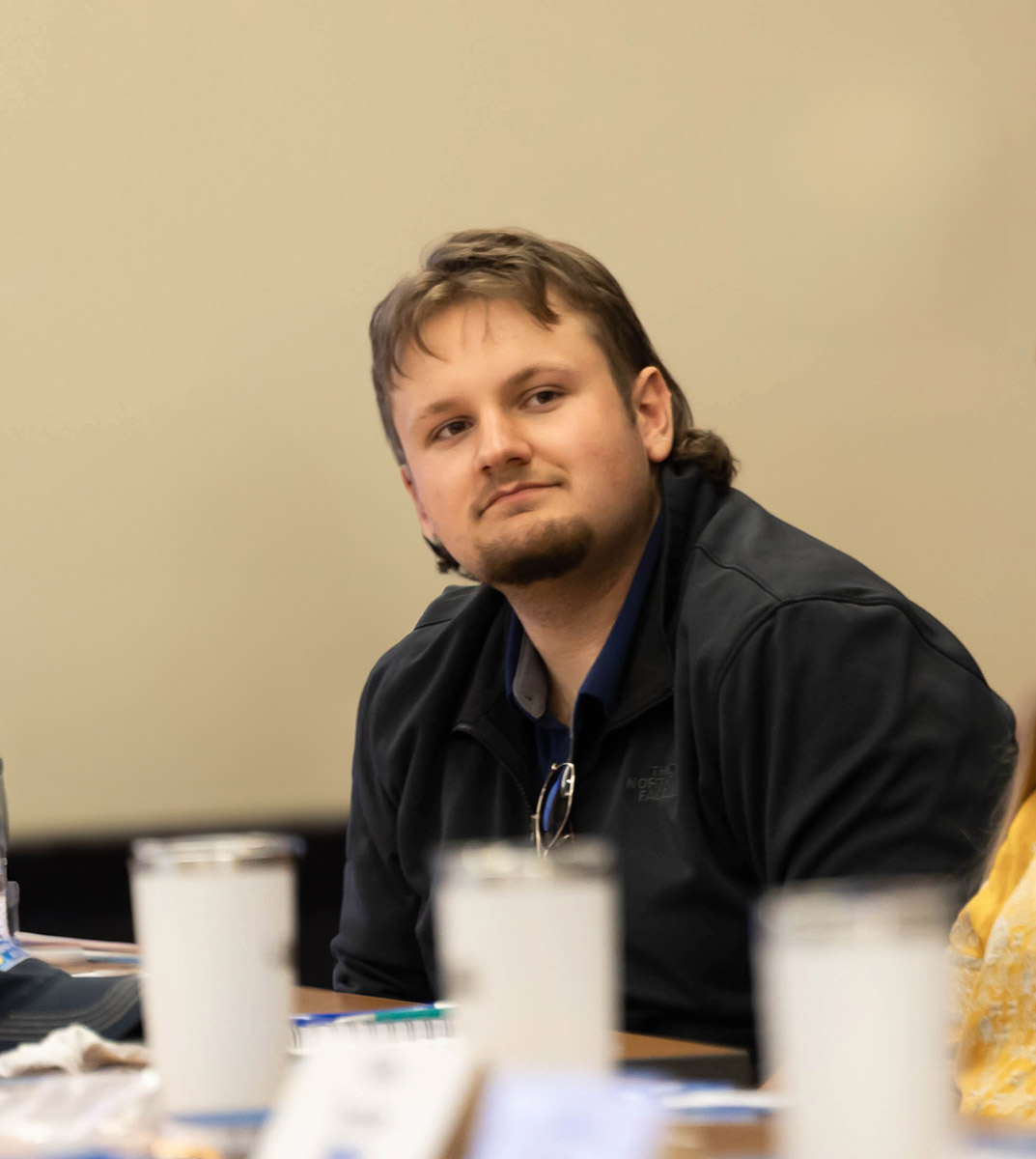
What experience did you gain from your internship at ISA?
Mostly agronomy experience. I was getting to go out, identifying weeds and insects, and learning about farmers’ different problems.
I also got to explore the conservation side. Learning more about some of those conservation practices. Before starting at the Iowa Soybean Association, I didn’t know what an oxbow was.
Our family is taking part in an improved cropping systems trial with strip tillage and cover crop stacking. This is our first trial with ISA and our first time using cover crops.
This is my second year of interning with ISA. I have enjoyed the environment at ISA and the people I work with. That’s the biggest reason for coming back.
How do you think your summer work benefited the Iowa soybean farmer?
Trial research. That is the entire purpose of RCFI. I was out collecting data, scouting fields, bringing back the data, and helping to identify problems and find solutions to those problems.
Cade Sporleder of Story City
What college are you attending and what is your major?
I will enter my senior year at ISU, majoring in agricultural education. I hope to be teaching ag studies and as an FFA advisor for a school district in Iowa.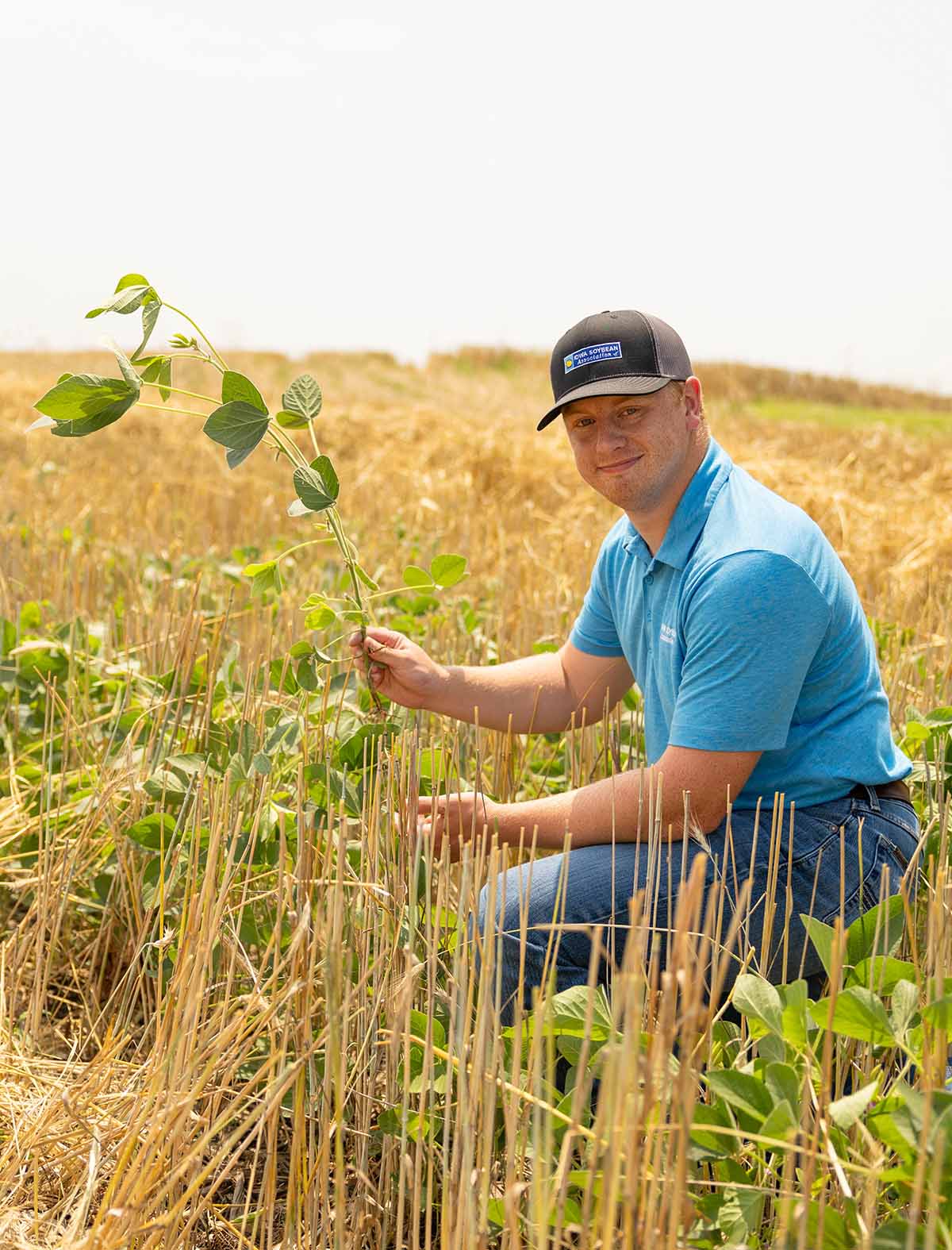
What experience did you gain from your internship at ISA?
I learned a lot. I don’t come from a farming background. Growing up in Iowa and having relatives who farm, I have always been surrounded by agriculture, which has drawn me to the industry. My internship helped me sharpen my knowledge in the agronomy and agricultural industry.
My project was a relay cropping trial. I found that interesting because of using cover crops but also getting more profitability out of your field with three crops in one year: corn harvested in the fall, rye harvested in the middle of summer and soybeans in the fall.
I enjoyed my time at ISA and the culture there. It was a positive experience. They truly care about each other and have the Iowa soybean farmer’s best interest in mind.
How did your summer work benefit the Iowa soybean farmer?
I did my part as an intern, working with research trials and collecting data to help farmers get the best product out of their fields and for ISA to be a resource of information for them.
Emma Haynes of Johnston
What college are you attending and what is your major?
I am beginning my senior year at ISU, majoring in environmental science with a minor in psychology. I have always been interested in the environment and its sustainability, especially solar energy.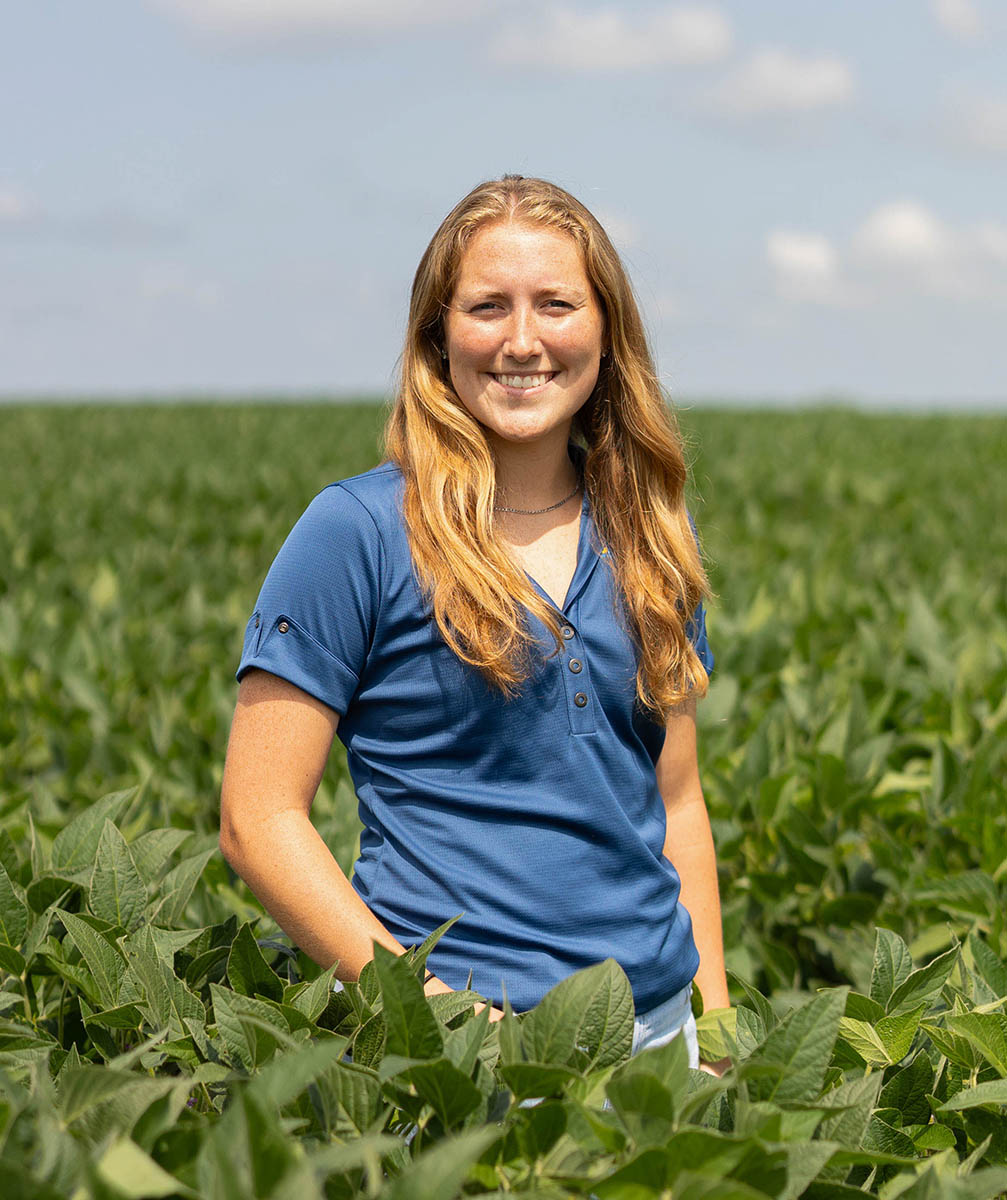
What experience did you gain from your internship at ISA?
I gained a lot. Not growing up on a farm or having an agricultural background, every day was a learning experience. I learned a lot about bioreactors, oxbows and other conservation practices.
My project focused on working with bioreactors and water sampling. The summer was full of great learning opportunities that will help further my education in the agronomy field. I am not exactly sure what I want to do after graduation; I would like to go into the renewable energy field, and I am also considering entering grad school.
Everything I learned at ISA, talking to farmers, working with the edge-of-field practices, and doing everything we can to improve our nutrient reduction has been beneficial.
How did your summer work benefit the Iowa soybean farmer?
Much of my internship revolved around water sampling in bioreactors. The data collected is important for farmers and ISA – it tells us how well edge-of-field practices are doing and how we can do better/improve them in the future.
Ethan Wing of Des Moines
What college are you attending and what is your major?
I am starting my last year as an environmental science and history major at Drake University. I plan to go to ISU for my PhD in environmental science, focusing on hydrology and edge-of-field practices.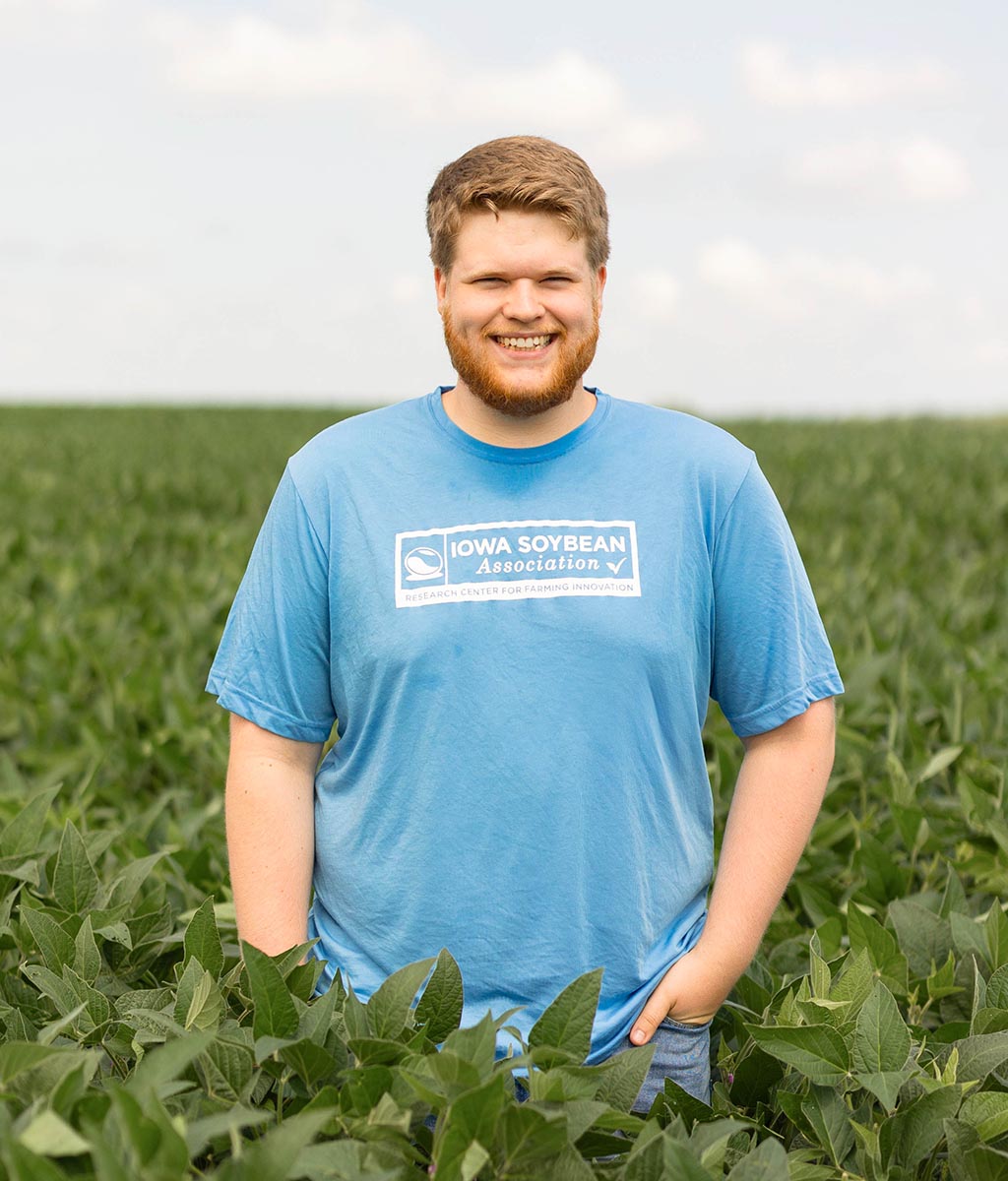
Seeing the issues water quality issues have caused in the state resonated with me and made me want to do something about it. The water quality issue in Iowa needs to be approached in ways that will not affect the farming industry’s impact in Iowa.
What experience did you gain from your internship at ISA?
Working the water lab and working with Tony Seeman, ISA water lab service manager, I could pick his brain. I also learned the back end of the water quality testing process, learning to run samples and having more of an understanding of nitrates and phosphates. I realize fertilizer might cause water quality issues, but it could also be caused by other things. I just learned a deep understanding of water quality.
I also attended field days with Alex Buseman and Brandon Iddings showcasing oxbows and bioreactors, looking more closely at those edge-of-field practices.
It has been an awesome, fun experience working with ISA and making connections I will have for a long time.
How do you think your summer work benefited the Iowa soybean farmer?
Every single water sample from a farmer’s field comes to the lab. It ensures proper testing and quality checks to ensure samples are accurate. It shows farmers how their conservation efforts work, showing them they can do sustainable practices and not fall short economically.
Back